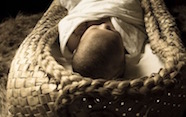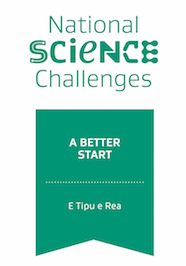Can improving sleep improve wellbeing in tamariki and their whānau?
Getting enough good quality sleep is important for health and wellbeing at every age. Establishing good sleep patterns in babies is important for bonding with parents and for reducing maternal depression. Children who sleep well have healthier body weights, are able to do better at school, and have an increased ability to cope with whatever life throws at them.
However, getting enough good sleep can be challenging in today's world. Many of the guidelines used to promote good sleep may not fit the lived realities of life for some whānau, such as ensuring quiet, dark places for sleep and limiting screen time before bed.
Harnessing the power of traditional knowledge
Colonisation has had devastating effects on indigenous peoples, including in Aotearoa New Zealand. One result of this process has been the failure of western health systems to effectively and efficiently improve Māori and Pasifika health outcomes. Yet, there is significant potential for whānau to reclaim cultural parenting knowledge that has been passed down through whakapapa.
Similarly, many of the Pasifika communities in Aotearoa also experience degrees of disconnection from traditional knowledge and practices for childrearing and supporting family wellbeing. Strong cultural links are related to better health outcomes for Pasifika peoples, and provide a foundation for other community priorities such as providing the best start in life for their children.
This innovative new project will be led by experienced Māori and Pasifika researchers, working in collaboration with Māori and Pasifika agencies, Well Child providers, and a multidisciplinary team of researchers, to develop and test potential interventions that resonate with whānau, meet their needs, and improve health and wellbeing in tamariki.
Moemoeā
Moemoeā will explore Māori and Pacific expertise on nurture and connection before sleep, whānau responsiveness, communication and early oral language, and weave this with western evidence on effective ways of improving sleep in children to develop potential intervention approaches that are appropriate, engaging, useful and easy to use. These components will create a 'toolkit' that is tailored for Māori and Pasifika families, will support communication and connectedness between children and caregivers, and will incorporate relevant cultural values and traditions.
Rather than simply rolling out the toolkit as is typically done, we will use a highly innovative approach called the Multiphase Optimization Strategy (MOST) that is able to determine which individual components are effective, which are not, and which might add value to other components (even if not effective by themselves). By using MOST, we will ensure that the final toolkit only includes components with proven efficacy - a more economical approach in this time of scarce healthcare resources.
This Māori and Pacific led collaborative project allows communities to be a vital part of the development process and provides immense opportunities for workforce development, and for collaboration with agencies aiming to improve health and wellbeing in tamariki and their whānau.
Read more about Moemoeā
New research to get a better night's sleep for tamariki and their whānau, A Better Start National Science Challenge website, 9 October 2019.
Researcher Profiles
- Professor Rachael Taylor (Project lead)
- Dr Justine Camp (Māori lead)
- Associate Professor Rosalina Richards (Pasifika lead)
- Ms Albany Lucas (PhD student)
- Ms Lou Fangupo (PhD student)
- Ms Terina Raureti
- Ms Tania Cargo
- Professor Barbara Galland
- Dr Jill Haszard
- Dr Lisa Daniels
- Dr Barry Milne
- Professor Barry Taylor
Collaborators
Moana Research
Royal NZ Plunket Trust
- Ms Merata Snedden
- Ms Radha Balakrishnan
National Hauora Coalition
- Dr Rachel Brown
Talking Matters/COMET Auckland
- Mrs Alison Sutton
- Ms Huhana Ramsey
- Ms Emma Quigan
Moana Moko Creative Natives
- Mr Stuart McDonald
Te Rūnanga o Waihōpai
- Ms Odele Stehlin
The Centre for Health Limited, Tauranga
- Dr Anna Rolleston

Photo credit: Whakawhetū
